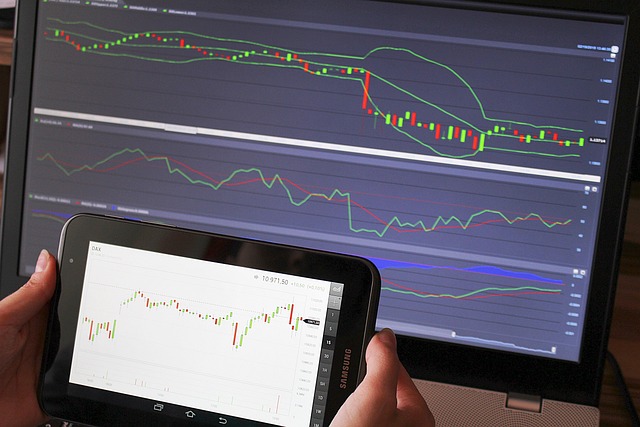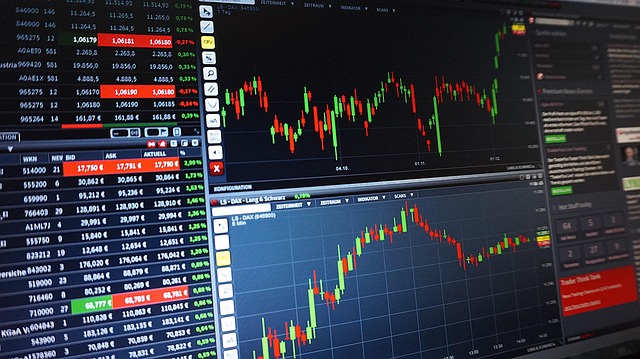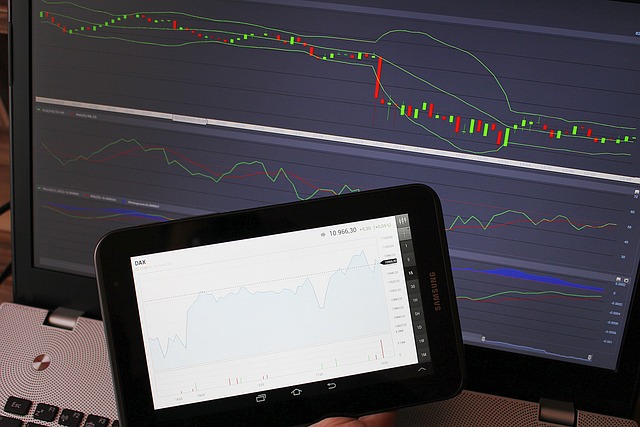Is Forex Trading Halal or Haram in Islam? An In-Depth Analysis
Author: Jameson Richman Expert
Published On: 2025-09-11
Prepared by Jameson Richman and our team of experts with over a decade of experience in cryptocurrency and digital asset analysis. Learn more about us.
The question of whether forex trading is permissible (halal) or forbidden (haram) in Islam has garnered significant scholarly and practical attention, especially amid the rapid globalization of currency markets and financial innovation. For Muslims engaged in financial activities, ensuring that their investments and trading practices align with Islamic principles rooted in the Quran and Sunnah is of utmost importance. Forex trading, with its complex mechanisms, diverse instruments, and strategies, presents unique challenges in determining its Islamic permissibility. This comprehensive analysis aims to provide deep insights into core Islamic finance principles, scrutinize the structure and practices of forex trading, explore divergent scholarly opinions, and offer practical guidance for Muslim traders committed to ethical and religious compliance while actively participating in the markets.

Core Principles of Islamic Finance and Their Relevance to Forex Trading
Islamic finance is based on foundational principles designed to promote justice, ethical conduct, social responsibility, and economic fairness. These principles establish a framework that any permissible financial activity must adhere to, including forex trading. The primary principles include:
- Riba (Usury or Interest): The most explicitly prohibited aspect in Islamic finance, riba involves earning or paying interest, which is condemned in numerous Quranic verses (e.g., Surah Al-Baqarah 2:275-279). Riba is considered exploitative and unjust, leading to economic disparity.
- Gharar (Excessive Uncertainty): Transactions must be transparent and free from excessive ambiguity or uncertainty. Gharar undermines fairness and can lead to unjust enrichment or exploitation. The Prophet Muhammad (peace be upon him) emphasized clarity in trade (Sahih Muslim).
- Maisir (Gambling or Speculation): Engaging in speculative activities akin to gambling is forbidden. Islam encourages productive economic activity based on tangible assets and real economic value, not pure chance or chance-based speculation.
- Legitimate Trade and Asset-Backed Transactions: Business dealings should involve tangible assets or services, aligning with real economic activity rather than speculative or financial engineering that produces no real value.
- Profit and Loss Sharing: Islamic finance promotes risk-sharing mechanisms like mudarabah (profit-sharing) and musharakah (joint ventures), fostering social justice and equitable wealth distribution.
In essence, Islamic finance aims to create a just economic environment where wealth is generated through honest trade, shared risk, and social responsibility. When evaluating forex trading, these principles serve as the benchmark to determine its permissibility, especially concerning interest, uncertainty, and speculation.
Dissecting Forex Trading: Mechanisms, Instruments, and Practices
Forex trading involves buying and selling currencies with the goal of profiting from exchange rate fluctuations. It operates across a decentralized global network, 24 hours a day, five days a week, involving banks, institutional investors, hedge funds, and individual traders. The core mechanics and prevalent practices directly influence its compliance with Islamic law:
- Transaction Timing & Settlement: The Islamic principle of hand-to-hand or immediate exchange requires that transactions be settled promptly, typically within the same day, to avoid interest or deferred agreements. Spot forex transactions generally fulfill this criterion, as currencies are exchanged instantly or within a short window. However, forward contracts, which involve deferred settlement, often carry interest components and are associated with gharar.
- Leverage and Margin Trading: Leverage amplifies potential profits but also exposes traders to higher risks. Excessive leverage, especially levels above 1:10, can foster gambling-like behavior and speculative risks, raising concerns about gharar and maisir. The use of leverage in high amounts can lead traders to engage in transactions resembling speculation or gambling rather than genuine trade, challenging Islamic principles.
- Derivative Instruments: CFDs, futures, options, swaps, and other derivatives often involve complex contractual structures. Many such instruments rely on or incorporate elements of interest (through rollover or financing charges), gharar, or speculation. Their high leverage and uncertain nature make their Islamic permissibility highly questionable.
- Trader Intent and Ethical Conduct: The purpose of trading influences its Islamic status. Hedging for legitimate risk management is generally viewed more favorably than speculative trading solely aiming at short-term profits, which may resemble gambling and be incompatible with Islamic ethics.
The challenge for Islamic scholars and traders is to discern whether such practices uphold the core principles of fairness, transparency, and asset backing, or whether they veer into prohibited territory marked by excessive uncertainty, interest, and gambling-like behavior.
Scholarly Perspectives and Divergent Rulings on Forex Trading
Islamic scholars and jurists have issued varied opinions regarding the permissibility of forex trading, reflecting differing interpretations of Islamic law, market practices, and contemporary financial innovations:
- Permissibility with Conditions: Many modern scholars and Islamic financial institutions argue that forex trading can be permissible if conducted under strict conditions: immediate settlement (spot trade), absence of interest (riba), transparency, and avoiding excessive speculation. They emphasize that if trading involves actual currency exchange on a hand-to-hand basis, with no rollover interest or gharar, it aligns with Islamic principles.
- Concerns and Prohibitions: Conversely, some scholars highlight the risks associated with high leverage, the involvement of interest in rollover or financing charges, and the use of complex derivatives. They argue that such elements introduce gharar and maisir, equating the activity more with gambling than legitimate trade, thus rendering it haram.
- Regional and Institutional Guidelines: Bodies like the Accounting and Auditing Organization for Islamic Financial Institutions (AAOIFI) and various fatwas offer guidelines, but a unified, universally accepted ruling remains elusive. Their recommendations often include abstinence from high-leverage instruments, interest-bearing products, and derivatives involving gharar.
Given these divergent views, individual traders are advised to consult qualified Islamic scholars knowledgeable about contemporary financial markets to obtain personalized, context-specific rulings.

Innovative Financial Solutions Supporting Islamic Compliance
In response to the demand for Shariah-compliant trading, financial institutions have developed specialized products and platforms, including Islamic (swap-free) accounts, which aim to eliminate elements deemed non-permissible:
- No Rollover or Swap Interest: Swap-free accounts do not accrue or pay rollover interest (riba), directly addressing the interest concern.
- Immediate Settlement & Spot Transactions: Trades are executed on a spot basis with prompt settlement, reducing gharar and speculative risks associated with deferred contracts.
- Scholarly Certification & Due Diligence: Many platforms advertise Islamic certification from reputable fatwa bodies; however, traders must verify such claims and ensure that trading practices strictly follow the guidelines set by qualified scholars.
Despite these developments, traders should exercise caution—ensuring that the platform's claims of Shariah compliance are credible and that trading activities adhere to Islamic ethical standards. Vigilance is key, as not all purported Islamic accounts fully comply with Islamic law.
Practical Guidelines for Muslim Traders Engaged in Forex
For Muslims wishing to participate in forex trading while maintaining religious integrity, the following comprehensive guidelines are recommended:
- Trade on a Spot Basis: Engage only in immediate exchange transactions, avoiding forward contracts, options, or derivatives that involve interest or gharar. Ensure the settlement is prompt and transparent.
- Use Verified Islamic or Swap-Free Accounts: Select brokers with certification from reputable Islamic scholars or fatwa organizations. Confirm that account features align with Islamic principles.
- Limit Leverage & Adopt Conservative Strategies: Use minimal leverage to mitigate excessive risk and avoid speculative behaviors that resemble gambling. Focus on sustainable, ethical trading strategies.
- Continuous Scholarly Consultation: Regularly seek guidance from qualified Islamic scholars specializing in Islamic finance to review trading activities and ensure ongoing compliance with evolving standards.
- Maintain Ethical Conduct & Transparency: Conduct trades honestly, avoid manipulative practices, and disclose all relevant information. Ethical trading not only aligns with Islamic values but also fosters long-term success.
Legal and Regional Variations: Challenges and Differences in Interpretation
The Islamic scholarly community does not present a monolithic stance on forex trading, leading to regional and institutional variations in rulings. Some scholars permit forex trading if conducted strictly, while others remain cautious or prohibit certain practices due to high leverage, speculation, or the involvement of interest. Regional bodies like AAOIFI and local fatwa councils strive to develop standardized guidelines, but inconsistency persists. Consequently, traders should actively seek regional fatwas and consult local scholars, especially when dealing with complex instruments or cross-border transactions.

Advanced Considerations: Complex Instruments and Regulatory Contexts
Beyond straightforward spot transactions, complex derivatives—such as options, futures, CFDs, and swaps—pose additional challenges for Islamic compliance. Many of these instruments involve interest, high gharar, or speculative risk, making their permissibility doubtful. Traders should carefully analyze each instrument’s contractual structure, underlying assets, and whether they involve interest or excessive uncertainty.
Furthermore, national regulations and legal frameworks influence the permissibility and oversight of forex trading. Some jurisdictions have clear Islamic finance regulations or fatwas, facilitating compliance, while others lack formal guidance. Traders operating internationally must stay informed about regional laws and seek local scholarly counsel to prevent unintentional violations and uphold Islamic standards.
Concluding Remarks: Navigating Ethical Forex Participation in Islam
In summary, the permissibility of forex trading in Islam hinges on strict adherence to core principles—immediate settlement, interest-free dealings, transparency, and moderation. While some scholars and Islamic financial institutions permit forex trading under strict conditions, others urge caution or prohibit it altogether due to the risks of gharar and maisir. Ultimately, Muslim traders committed to religious compliance should prioritize ongoing education, select certified Islamic trading platforms, and seek regular scholarly guidance. As Islamic finance continues to evolve, consensus and clarity are likely to improve, enabling Muslims to participate confidently and ethically in forex markets without compromising their religious obligations.